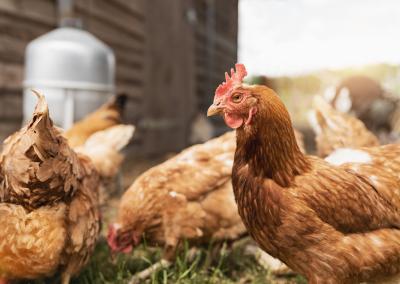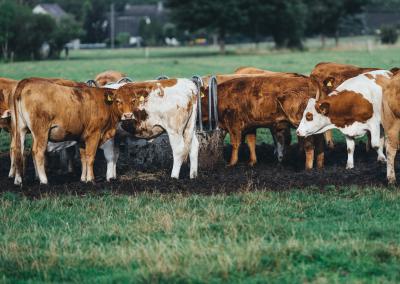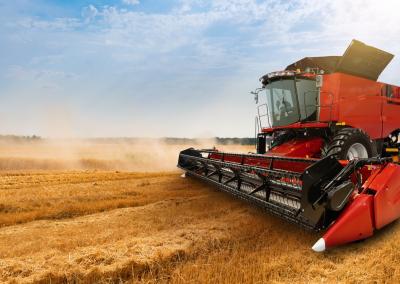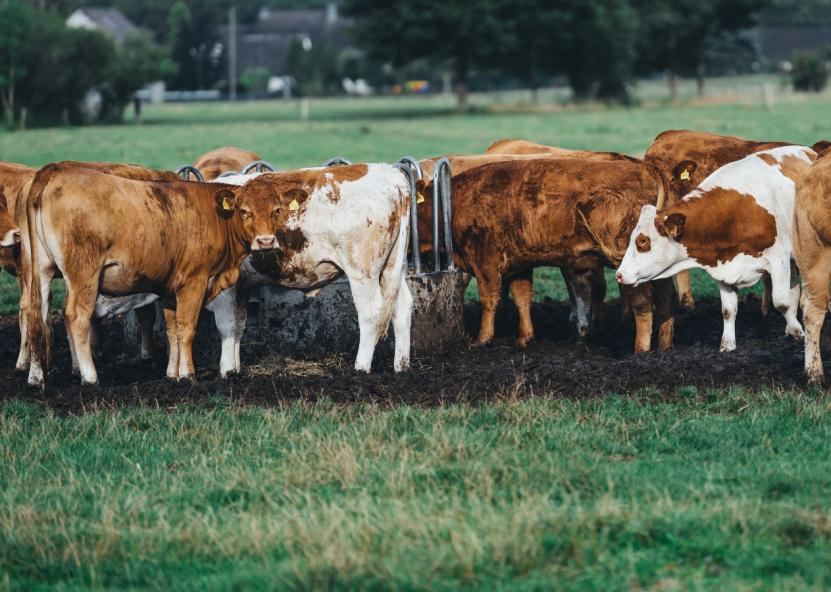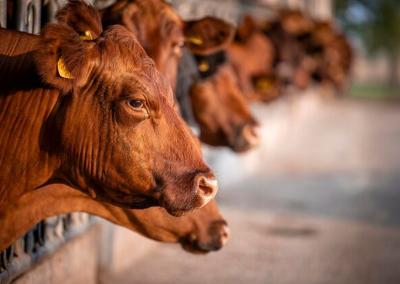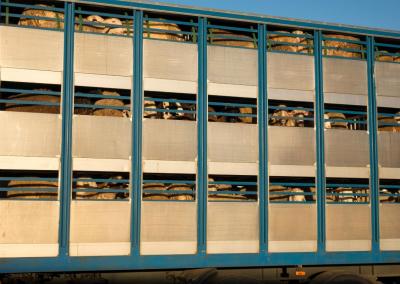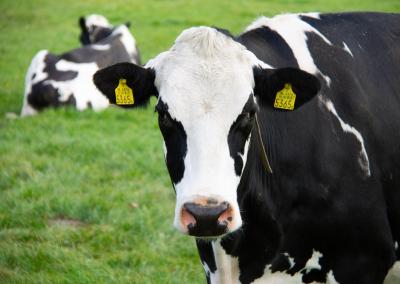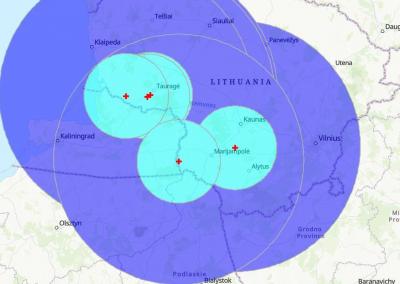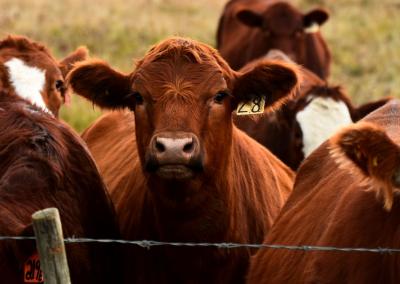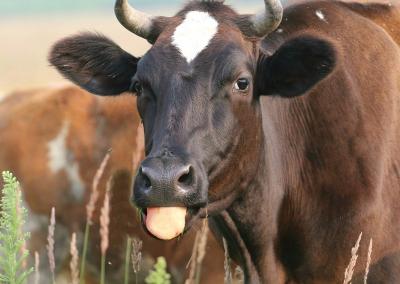Cattle farmers' representative on the consequences of bluetongue: business abuse
The confirmation of Blue Tongue Disease (BTD) in six Lithuanian cattle farms is causing losses for farmers and profits for cattle buyers, says Nerijus Gricius, chairman of the Lithuanian Meat Cattle Breeders and Improvers Association (LMGAGA).
„The buyers are seizing the opportunity and have already stated that prices are falling. If anyone is buying now, it is already at significantly lower prices, especially what happened this week – dairy calves had reached the limit of 7.5 euros (per kilo – ELTA), and today we hear that they are being paid even up to 3 euros, which is a doubling of the price, – said N. Gricius to Elta.
„Cattle can only move from farm to farm and to slaughterhouses in Lithuania at the moment, and the offspring, the younger ones, (...) the weaned calves that are exported and for which the best price is obtained, do not move at the moment. There is already talk that as soon as we get our house in order and can ship, there will be a significant price reduction," he said.According to the beef cattle representative, farmers are currently scared and the business is abusing the low farmgate prices of livestock.
„We are actually sorry to hear that farmers are selling these animals at such low prices, in chaos, frightened by the buyers that it is going to get worse as it goes on. (...) We want to see the right price restored as soon as possible and farmers to get as much income as possible, because today the business is being abused“, – said N. Gricius.
„The price has already fallen by 20–30 percent and is said to fall further because of increased supply and seasonality. They are trying to write it off on the wrong tongue, they are trying to make a different argument, but what we see is that only after the disease was announced has there been a fall in prices“, said the President of the Association.Prices will rise as trade stabilises
According to a representative of beef cattle farmers, things will get back on track once trade stabilises and restrictions on trade are eased.
„I think once we manage to stabilise the whole trade, there will be normal competition again and prices will go up again, because there are more of those buyers everywhere. Today, slaughterhouses are rubbing their hands because cattle are going to them with no requirements and there is an easy monopoly trade," said Mr Gricius.
„There are maybe 5–6 slaughterhouses in Lithuania that buy these animals and it is very easy for them to agree among themselves that prices should fall“, – he continued.
However, he said, the uncertainty about the conditions for cattle exports is currently causing problems for the trade. Before the introduction of MLD in Lithuania, he said, half of the cattle were exported to other countries.
„Farmers have a huge problem because at the moment our trade is either not allowed or very severely restricted. We do not have any descriptions of how we can export these cattle to other countries today, there are no established procedures, there are only assumptions, and the more this goes on, the harder it is for the farmers," said the cattle farmers' representative.
„It's not that simple, you need to contact those countries urgently and negotiate. (...) In the past, there used to be exports to Poland, a lot of them, half of the cattle went for export, “, – said N. Gricius.
Better preparation was needed
The chairman of the Lithuanian Association of Beef Cattle Breeders and Improvers said the country should have prepared better for the outbreak of MLL by anticipating changes in export conditions.
„We could have not had that transitional period, we could have prepared, and the State Food and Veterinary Service could have prepared that scheme of how the cattle would go if that happened. Not when there is already a problem and we are looking for ways to keep those cattle moving," he said.
The State Food and Veterinary Service (SVVT) and the Ministry of Agriculture (MAF) have scheduled the vaccination to be considered closer to spring, as the disease-carrying aphids are no longer active in the cold season. According to Mr Gricius, there is a risk that the spread of the disease will not be contained in spring.
„Right now we have those six farms, but I think that come spring there will be a hundred and two hundred. (…) We're trying to see if we can get enough vaccine so that those farmers who feel the risk and don't want to take the risk can get vaccinated,“ – he said.
„I think that this is where the next step should be. (…) With the insects not flying and not spreading the disease at the moment, it is imperative to take as many steps as possible during that period to prevent the spread of the disease and maybe even eradicate the disease altogether, “, added the chairman of the association.On Monday, the VMVT announced that the European Union (EU) reference laboratory has confirmed six suspected cases of Lyme disease in Lithuanian cattle farms.
In order to prevent the spread of the MLL virus, the Director of the VMVT, Audronė Mikalauskienė, has ordered the declaration of six outbreak sites: cattle farms in the municipalities of Marijampolė, Pagėgiai, and the districts of Prienai, Tauragė, and Vilkaviškis.
The Authority reminds that FMD is a viral disease which is not dangerous to humans. It is most often contracted by cattle, goats, deer, camels, llamas and alpacas, but it is the infected sheep that are most severely affected.
According to the MoHFW and the Minister of Agriculture, no vaccination is currently planned.
After confirmation of the disease by the reference laboratory, the Authority said that in order to export cattle for further breeding to other EU Member States or outside the EU, it is now necessary to comply with the requirements for control of MLL set by the host country, and to carry out additional tests for MLL and to obtain negative results from PCR tests.
The Authority announces that when animals are transported to other EU countries for slaughter, the operator of dispatch must inform the responsible authority of the place of destination 48 hours in advance.
On the territory of Lithuania, they can be transported without further restrictions, the ban only applies to holdings infected with MLD.

